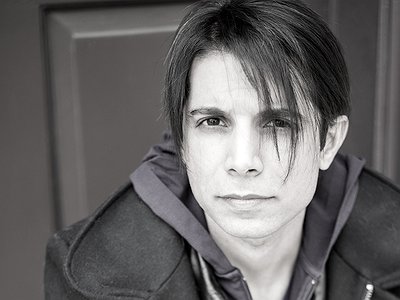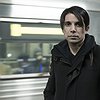Part 2
Many contemporary production tools already take over significant parts of what would formerly have constituted compositional work. How has this affected your own production process and its results? Are there any promising solutions or set-ups capable of triggering new ideas inside of you as a composer?
The latest software production tools are exciting because they’re finally crossing over the recording/mixing paradigm to now becoming real-time performance instruments as well. It’s getting me very eager to rethink and rework my compositional process so that it’s not broken into so many steps (brainstorming, writing, editing, recording, mixing, tweaking, and then repeating it all). Some of these tools have already been fairly established in the worlds of electronic music, like Ableton Live and Maschine.
Can you take me through your process of composing a soundtrack on the basis of a movie that's particularly dear to you, please? Where do ideas come from, what do you start with and how do you go about shaping these ideas?
I start by reading the script, visiting the set, or watching the film a few times. I was able to do all of the above for SHE'S LOST CONTROL because I was brought on-board very early. The intention was to get the story, characters and spirit of the film under my skin, composing as if from inside the film, rather than from the outside looking in.
Once I feel like I know the universe of the film, I’ll meet with the director and see if our ideas and impressions co-mingle in a positive way. We’ll sit for long spotting sessions, breaking down and deconstructing the film, scene-by-scene and act by act to see where, how and why music can help. I'm not exaggerating when I say it feels a lot like an intense therapy session. I have a couch but we usually avoid a tearful confession.
Out of this spotting session, I'll know where the music needs to go, plus I'll get some free associations that will lead to ideas, which will prompt my own research into the characters’ lives and back stories. That usually inspires rough or even detailed musical sketches, Spotify playlists, temp scores or sound palettes. The director’s feedback will then focus my next steps on composing themes, melodies or even actual cues for specific scenes.
Ideally I'll also be swapping rough ideas with the Sound Designer so that we're on the same page about how the score and sound design will work together to realize the director's vision.
How do you see the relationship between image and sound in a movie? How directly are you working with the images in the writing process?
Image and sound are totally linked for me. Even if there is no music intended for the scene, I'm imagining what the shot or setting sounds like. Hopefully, the images will inspire the music and the music is somehow opening up new interpretations of the image. Like a lot of musicians, when my mind visualizes emotions, there’s a coincidental soundtrack playing along in my head. I think that’s true for a lot of non-musicians as well. I doubt our fantasies and daydreams are the equivalent of silent films.
So of course, I often score while the film rolls. And yet, even if I conjure up a melody for a scene, sometimes the images or performances become so vividly etched in my brain, I’ll hear additional parts for that scene well after the fact.
What do improvisation and composition mean to you and what, to you, are their respective merits?
Improvisation and composition feel like two sides of the same coin. I’ll often start improvising first, which is really an attempt at trying-not-to-try. It’s rooted in Eno’s advice to play the instrument as if it was the first time you picked it up, so without any warm up or musical reference (scales, key signature, or patterns). The goal is to break you out of essential but also limiting musical habits. The merit of this approach is that the music often comes out feeling more instinctively rooted to the spirit of the film, even though it can also be pretty raw and formless. There’s usually a germ of something new and if I’m lucky, it’ll lead to a happy accident of something I hadn't even conceived of. Once I come up with something promising, I’ll switch into composition mode and start adding form and structure to these raw sessions.
How do you see the relationship between sound, space and composition and what are some of your strategies and approaches of working with them?
Silence and space can be used in communicating emotion just as effectively as music, sometimes even more so. Once I figured that out, my compositions become more effective because they weren't taking up so much of the audience's attention. When the music does enter the picture, it's playing a more meaningful and integrated role because it doesn't overplay its hand or overstay its welcome.
Soundtrack composer typically need to adapt their ideas to the film, the director and the audience. How do you maintain a balance between, on the one hand, artistic integrity and sticking to your creative convictions and, on the other, being professional? How do you find a sense of freedom within these structures?
I try to never forget that at the end of the day, it's the director's film. I also have to keep in mind that the audience expects us, as filmmakers, to engage, enlighten and most importantly, to entertain. When I keep those realities in mind, it makes it easier to avoid getting too precious about my music. Being challenged by the confines of genre, style or budget is good because it's a chance to create something new and surprising within a structure that isn't expecting it and is primed for a new direction.
I also constantly remind myself that ‘this is a collaboration, not a solo album, and will only work if I trust the director’s vision’. Pretty often the music takes a path I wouldn’t have been capable of taking it to, and the result is better than it would have been if I was left to my own devices.
Over the decades, film music has developed a certain tradition and vocabulary of techniques and creative devices. How would you describe your relationship with this tradition and what roles does it play in your work? Are there compositional devices which you don't find appropriate or wouldn't use right now, because they're too closely associated with a particular era or because they feel like a cliché?
I’m happy that my relationship with film music's tradition and vocabulary of techniques still feels fresh and new. It’s like I'm still on the first date: there's an enticing mystery and a fair amount of discovery, making the process a little fun and a little intimidating. Of course, I would feel differently if I had to work with the same instrumentation, genre or sound on every project.
I wouldn't rule out a traditional route just because it's a cliché - if anything, I'll be more likely to shake it up, juxtaposing the clichés with the avant garde, the sentimental with the cool. I think it would be fun to pair up music with a film genre you wouldn't expect, for example, scoring a period piece with modern electronic music a la, THE KNICK.
The balance between visuals, fx and film music is a delicate one. What, from your point of view, determines whether or not it is a successful one?
It’s successful when each audio element feels like it's an organic glue for the film and you don’t consciously notice the distinction between each element until you take one out, and then the whole thing feels like it's going to crumble.
Visit Simon's website at www.simontaufique.com






